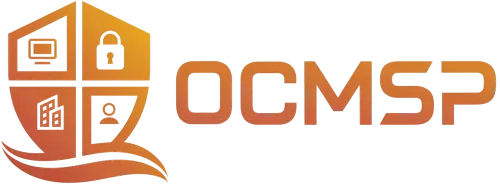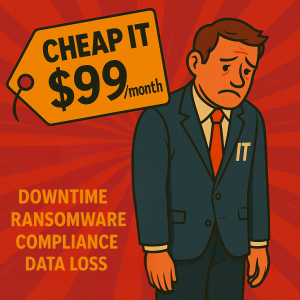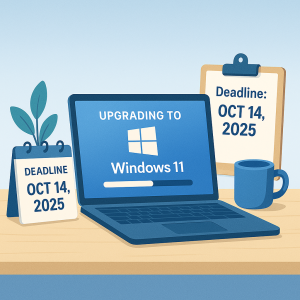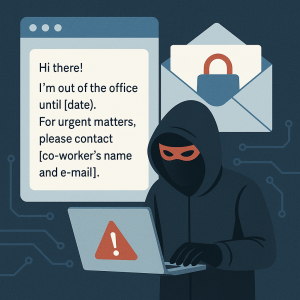May 19, 2025
When you think about cybersecurity threats in your office, you probably picture phishing emails, malware, or weak passwords. But what if one of your biggest vulnerabilities is quietly humming in the corner?
That's right—your office printer might be one of the easiest ways for hackers to break into your network.
It sounds absurd… until it's not.
In 2020, Cybernews conducted a "Printer Hack Experiment" and successfully accessed 56% of 50,000 exposed printers—over 28,000 devices compromised, simply because companies overlooked basic printer security.
Why Do Hackers Target Printers?
Because they're low-hanging fruit packed with high-value data.
Most businesses in Irvine, Newport Beach, Costa Mesa, and surrounding cities in Orange County cities don't realize how exposed their printers really are. Here's what can happen when a hacker gets access:
1. Printers Store Sensitive Data
Printers with built-in memory can store years of scanned or printed documents—including payroll files, contracts, and medical records. Hackers can steal, reprint, or email those files remotely.
2. Default Passwords Are Easy Targets
Printers often ship with default logins like "admin/admin" or "123456." If you haven't changed yours, hackers can log in with zero effort.
3. Printers Can Serve as a Network Backdoor
Once inside your printer, hackers can launch malware, access shared files, or move laterally across your network to infect other systems.
4. Unencrypted Print Jobs Can Be Intercepted
Without secure print features or encryption, documents can be intercepted mid-transit—exposing private contracts, HR records, or legal documents.
5. They Can Be Used to Spy on Your Business
With scan-to-email functions and internal storage, modern printers can be used to remotely access files, scan documents, and email them out—without your knowledge.
6. Outdated Firmware Is a Major Weak Spot
Most businesses don't regularly update printer firmware, even though updates often include patches for known vulnerabilities.
7. Discarded Printers Can Leak Data
Even after disposal, a printer's internal storage can retain sensitive files. If not wiped properly, it's a goldmine for cybercriminals and a liability for your business.
How to Protect Your Printer from Cyber Threats
Now that you know printers can be hacked, here's how to lock them down:
✅ Change Default Admin Credentials
Set a strong, unique password—just like you would for your email or banking accounts.
🔄 Update Firmware Regularly
Check for and install manufacturer updates that patch known vulnerabilities.
🔒 Encrypt Print Jobs
Enable Secure Print features and end-to-end encryption for added protection.
🎯 Restrict Print Access
Use access controls, PIN codes, or guest restrictions to limit who can print—and what they can print.
🗑️ Regularly Clear Stored Data
Manually clear cached jobs. If your printer has a hard drive, ensure it's encrypted and wiped before replacement or disposal.
🔥 Use a Firewall
Printers should be segmented and protected just like any other device on your network.
🧭 Monitor Printer Logs
Have your IT provider monitor printer activity. Suspicious login attempts or off-hours printing should trigger alerts.
It's Time to Rethink Printer Security
Printers are often overlooked because they don't seem like "smart" devices. But that's exactly why hackers love them—they're unguarded and full of valuable data.
If you're securing your computers but ignoring your printers, you're leaving a major gap in your cybersecurity strategy.
At OCMSP, we help businesses across Irvine, Newport Beach, Costa Mesa, and nearby Orange County cities secure every endpoint—including printers.
Ready to See If Your Printers Are Putting You at Risk?
Start with a FREE Network Security Assessment.
We'll check your print environment for vulnerabilities and help you tighten up your cybersecurity posture—before someone else exploits it.
Call: (949) 390-9803
Visit: www.OCMSP.com
Email: info@ocmsp.com



